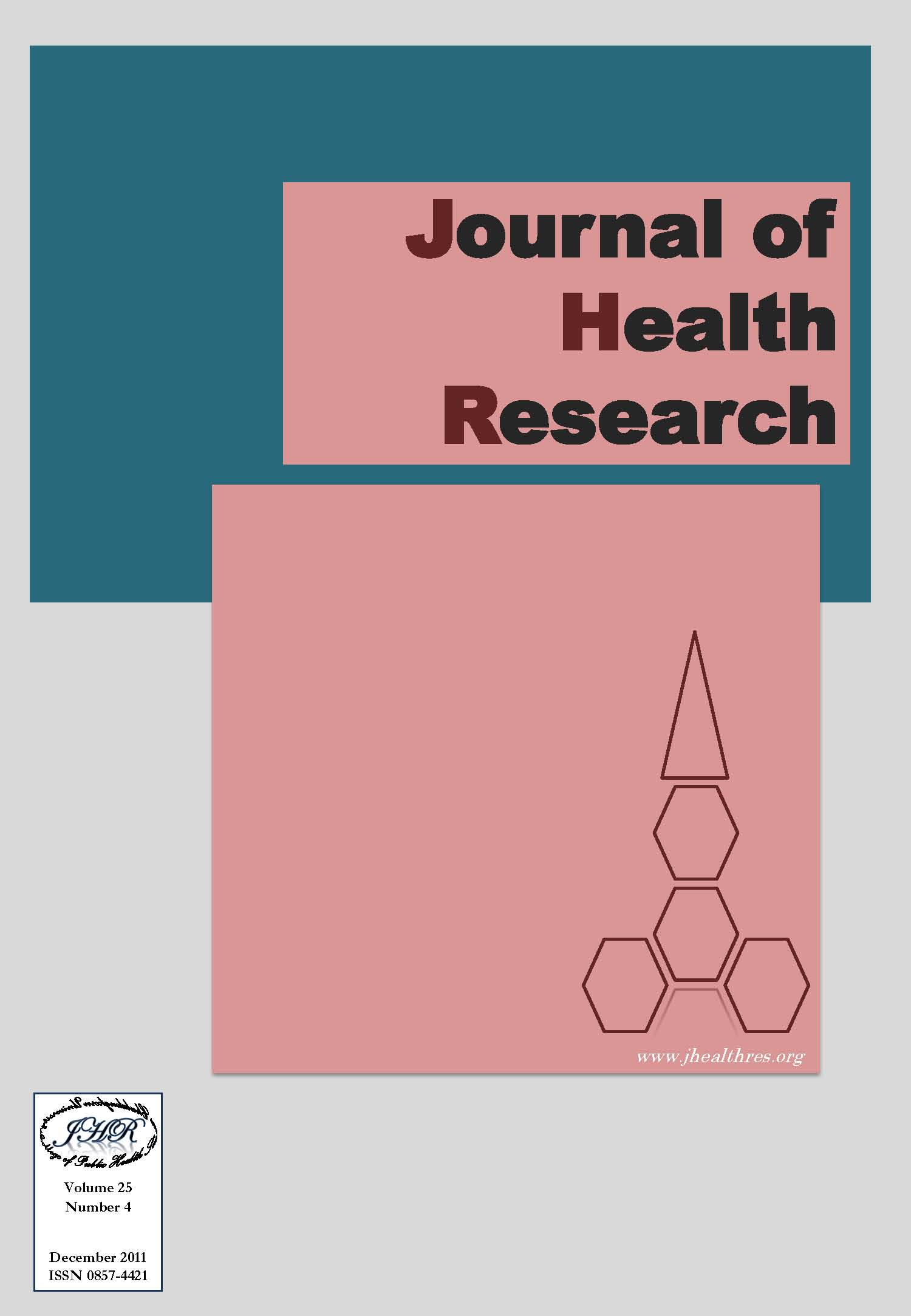Blood Toluene and Genotoxicity in Gasoline Station Workers in Bangkok: A Preliminary Study
Keywords:
Genotoxicity, SCE, TolueneAbstract
Toluene is widely used as an industrial solvent and is usually produced in the processes of making gasoline. Inhaled toluene may cause genotoxicity and other adverse health effects. This study aimed to ascertain the relation between blood toluene exposure and genotoxicity, as measured by sister chromatid exchange (SCE), by comparing gasoline station workers to controls. Mean blood toluene and SCEs in gas station workers were 225.06 mg/L and 13.62 SCEs/cell, respectively which they were significantly higher than those in controls (p=0.001 and p<0.001, respectively). Also, linear regression analysis showed a significant positive relation (p<0.01) between blood toluene and SCEs. Age was inversely related to SCEs (p<0.01). In conclusion, SCEs may be supported the warning of genotoxicity by toluene exposure in gasoline station workers.







